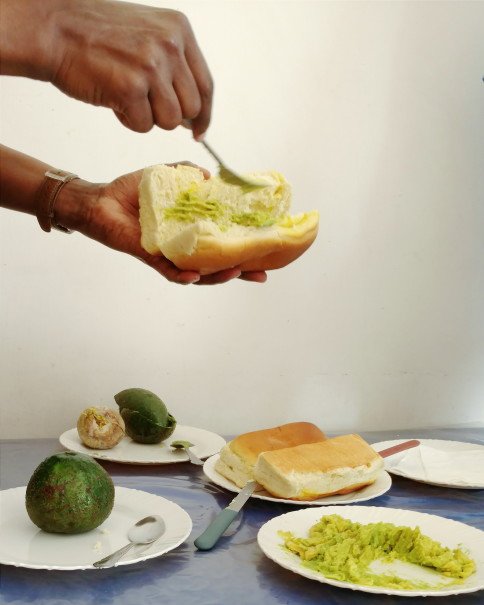
Speaking the International Medical Language of Avocado Toast

Speaking the International Medical Language of Avocado Toast
Avocado Toast in Ruhango District
The journey to Ruhango Hospital from Kigali was hard, quite literally: I had felt every rock and pebble on the unpaved roads winding through the land of a thousand hills. In spite of this, our team of doctors—the senior physician, our Rwandan medical students Dennis and Gerard, and me, the gynecology resident on her first global medical mission—arrived early in the morning. Already, a throng of women were waiting, clustered patiently in the atrium. By the time we had found a rhythm by which to see the growing crowd, it was noon. We had yet to have our first meal.
Exhausted, perhaps from the high sun, lack of food, or the speed of work, we wandered in search of sustenance. Near the front of the hospital, we found a sign declaring “Cafeteriya – Cantine – Canteen,” in hand-painted letters. Inside the unassuming little room, a glass display similar to a jewelry case stood in place of a counter. A wealth of gem-like mangoes and bananas and golden oval pastries sat along the shelves. On a nearby table, a gaggle of mismatched thermoses full of milk and tea were gathered.
From the bright case, the medical students selected two soft rolls, elongated like baguettes but clearly of a softer crumb, and two perfectly round fruits. I only recognized these as avocados when they split the hard skin with a paring knife, and the soft green flesh and large pit appeared. With surgical precision, they scooped out the flesh in thick green curls and flattened them onto the split rolls with a fork. Though I gripped the dry, foil-wrapped bar I had brought for a meal, my mouth watered as a familiar meal emerged.
I’ve always thought of avocado toast as thoroughly American: trendy, green, and very Californian. And yet, it is admittedly simple and delicious, my breakfast of choice in those precious early morning hours before surgery. After a shower of salt and a drip of balsamic vinegar, the toast would be in my mouth and I would be out the door. And here it was again, a quick meal for hungry doctors, recreated a continent away.
My first days in Rwanda had been a haze of the unfamiliar. Though conceptually I was prepared for difficulty, reality was harder. Endlessly hopeful crowds waited for help, and there were many women we could not aid. Even communicating simple commands was a complicated process involving overworked Rwandan students, my high-school French, and the few Kinyarwandan words I picked up from repetition. Every night, I passed out on my bed, often before dinner, overwhelmed by jet lag and cultural barriers.
But food is a universal language, perhaps the greatest unifier, and when it comes to filling the bellies of medical trainees on the go, things are the same the world around. The simple, bright green comfort of avocado and bread became an instant touchstone of connection to a land I was learning to understand and to a people I was growing to love.